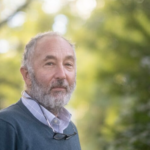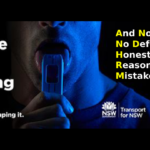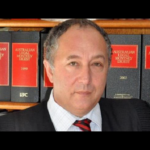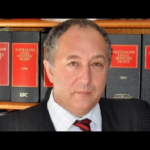Former Magistrate Heilpern Tells It Straight on Parochial NSW Cannabis Prohibition
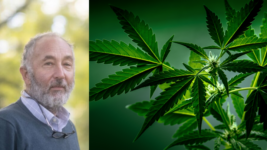
When former NSW Lismore Magistrate David Heilpern gave up the gavel a few years back, the NSW Northern Rivers community were saddened to see him go, as instead of applying major party ethics at the bench, he was a judicial officer known for his pursuit of justice when faced by unjust laws.
And as Heilpern put it to the NSW parliamentary inquiry into the impact of this state’s cannabis regime on 20 August, he was a magistrate for 22 years and a criminal defence barrister before that, and over this entire time of practising law, he lamented that cannabis” remained unlawful.
“When I first started practising law, the following matters I appeared in: people charged with being homosexual, people charged with blasphemy, people charged with prostitution, people charged with vagrancy, people charged with abortion, and people who were charged with what was called SP bookmaking but basically was gambling on anything other than horses or dogs,” he explained.
The former magistrate then made the point that all these are now commonplace behaviours and “the sky has not fallen”. In fact, as the renowned legal professional put it, cannabis prohibition is “the last of the victimless libertarian issues left”.
Indeed, in NSW parliament right now, Heilpern would probably be hard pressed to find a politician who truly opposes his view that cannabis should not continue to be classified as illegal – that is except for NSW premier Chris Minns, who’s been consistently dodging and resisting calls in regard to the drug law reform agenda his party was expected to action on taking office.
The last victimless libertarian issue
The Impact of the Regulatory Framework for Cannabis in NSW inquiry is currently running in state parliament. And the chair of that committee is Legalise Cannabis NSW MLC Jeremy Buckingham who has been voted into office to ensure that NSW Labor does legalise cannabis.
The fact that this inquiry is even running, after a premier, who spoke big in opposition about drug law reform and has done since done everything he can to avoid broaching the issue, is a testament to the amount of community agreement around cannabis criminalisation being not just pointless but costly and harmful.
“When I did the list at Central court as a young lawyer, it was taken up with prostitution, with vagrancy and with offences relating to homosexuality,” Heilpern, who up until quite recently sat on the bench, explained. “They were the bread and butter, that’s what police were doing.”
“We’re now in a situation in NSW where there were more possession of cannabis matters dealt with by NSW police than there were breaches of apprehended domestic violence order matters dealt with in the courts,” declared the ex-judicial officer.
This would seem to imply that making low level cannabis busts is a common preoccupation for police these days, in a similar manner to prior practices involving arresting people over sex work or partaking in gay sex once was, which were useless acts of turning a policing profit whilst enforcing Christian morality in an aggressive a manner as possible.
“That is not public priority, that is policing priority,” Heilpern expressed. “In effect, what parliament has done by keeping cannabis illegal is empower the police to set their own priorities that put child sexual abuse, domestic violence secondary to these ongoing drug offences.”
“In my 22 years as a magistrate, I never issued one warrant for a domestic violence offence. I never issued one warrant for a child sex offence,” Heilpern set out. “It was all drugs. This is the policing priority that we have allowed to exist.”
Convenient tools
Minns took office in March 2023. And in April, the Herald reported on his 2019 appearance at a meeting of pro-drug law reformist Labor members, at which he’s on the record as stating that he preferred the option of legalising cannabis over that of decriminalising it.
“The bottom line is that we can’t make it go away, but we can make it safer, less potent and less criminal,” the current NSW premier is quoted as saying, “without rewarding bikies and organised crime groups that feed off the black-market nature of the drug.”
But if personal drug possession is a bread-and-butter type preoccupation of NSW police, which BOCSAR figures suggest it is, as of the 34,419 arrests in regard to drug possession made over the period 2017 to 2021, 18,123 or 52 percent were due to cannabis, then there’s added reason for resistance.
And those figures show that over half of all drug offences acted against are small amounts of cannabis and this continues despite the fact that the Cannabis Cautioning Scheme has been in place since 2000, which gives police officers the discretion to issue up to two cautions prior to requiring them to make an arrest.
This NSW police discretion not to arrest civilians in relation to minor cannabis possession continues to result in just one in ten Aboriginal people not being arrested over their cannabis possession, while 44 percent of non-Indigenous people are not acted against.
So, why are cops charging any of these people over small amounts of cannabis possession at all considering it is harming no one? And why are more First Nations people being charged for partaking in that pastime than non-Indigenous people?
Minns commenced knocking back cannabis decriminalisation in April 2023, and he did the same regarding drug decriminalisation in general a few months later, but when spruiking the establishment of a discretionary alternative the EDDI, which is now in place, a press release referred to police retaining the ability to arrest people over personal possession as being “another tool to their kit”
Heilpern pointed to the wider use of drug laws in regard to policing bikie gangs, in ending his testimony, and he expressed that the whole dilemma around those groups is simply about drug prohibition, and that if prohibition was removed then those issues would disburse, as would many of the other harms associated with drugs.


